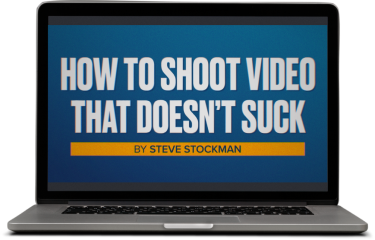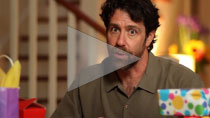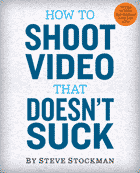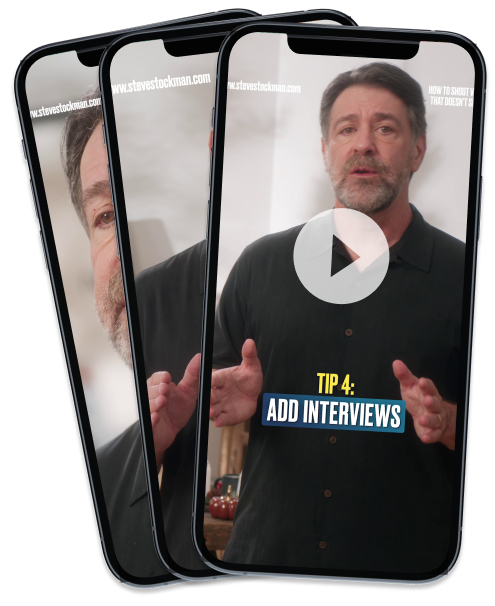I am a professional videographer, and your advice to “shoot short shots” is totally misguided. Pros shoot more than they need so they can make their video perfect in the editing room. Turning the camera on and off is an amateur move. How have you made a living in this business?
–Chris F., New York
Watch any film or TV show and you’ll see a series of very short shots (read why here). I argue that most people should get out of the habit of running the camera non-stop when shooting. And every so often I get a letter like this. But Chris has a point.
My advice to try in-camera editing isn’t based on professional videographers, who do shoot differently. But the underlying principle is true– for pros and everyone else. To understand, let’s break this into two cases, the editors and the non-editors :
If you don’t edit later: Dads at soccer games. Employees at the company picnic. Grandparents at graduations. For anyone documenting a live event and not likely to edit later: don’t run the camera non-stop. Not only will that 45 minute ballet recital be horribly boring to watch, but if you shoot everything in real time, you’ll need an extra lifetime to view it. For these people, shooting short shots instead means their video will fall out of the camera looking professionally edited— and way more interesting to watch.
If you do edit later: Pros still plan their shoot because pros know that shooting and editing aren’t free. The more you shoot, the more time it takes and the more money you pay your crew. The more footage you shoot, the more time you need to edit later. Yes, pros shoot differently than someone going with friends to a rock concert. They budget extra time and money to try multiple takes, repeat moves, and take more flyers on things that might not work (but would be awesome if they do!) But unless they’re landing from a helicopter in a fire tornado, pros don’t run the camera non-stop.
Your movie has to be shot in 45 days and edited in 10 weeks. Or your commercial has to be shot in 12 hours, and delivered in 2 weeks. To make those deadlines (and the budgets that come with them) you need to carefully plan your shooting and know when to stop.
To summarize: If you’re not editing later, edit “in camera” by doing short, thoughtful shots and your video will be way more watchable. If you are editing later, keep an eye on your time and money. In both cases, the more you plan and think about your shots in advance, the better.
Running the camera non-stop just means you have no idea what you’re doing.

Get a free preview of the new video course!
Sample two lessons from our new video course free right now. No signup or credit card required!










 Steve Stockman is a writer/ producer/ director in Los Angeles. How to Shoot Video That Doesn't Suck, available in 9 languages, is the best selling video how-to book in the world. You can find the updated edition from Workman Publishing wherever you get books, ebooks or audiobooks.
Steve Stockman is a writer/ producer/ director in Los Angeles. How to Shoot Video That Doesn't Suck, available in 9 languages, is the best selling video how-to book in the world. You can find the updated edition from Workman Publishing wherever you get books, ebooks or audiobooks. 

Nice guidelines… Thanks for sharing! ^^